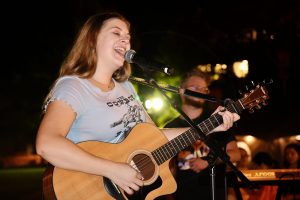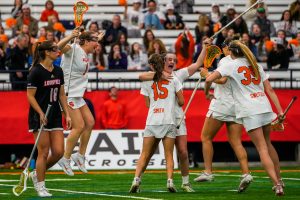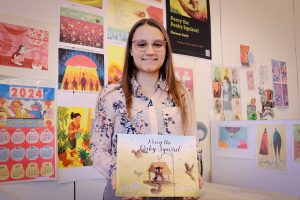Student house concerts are back and “Out of our pockets, baby”
Student house concerts are back and bangin'
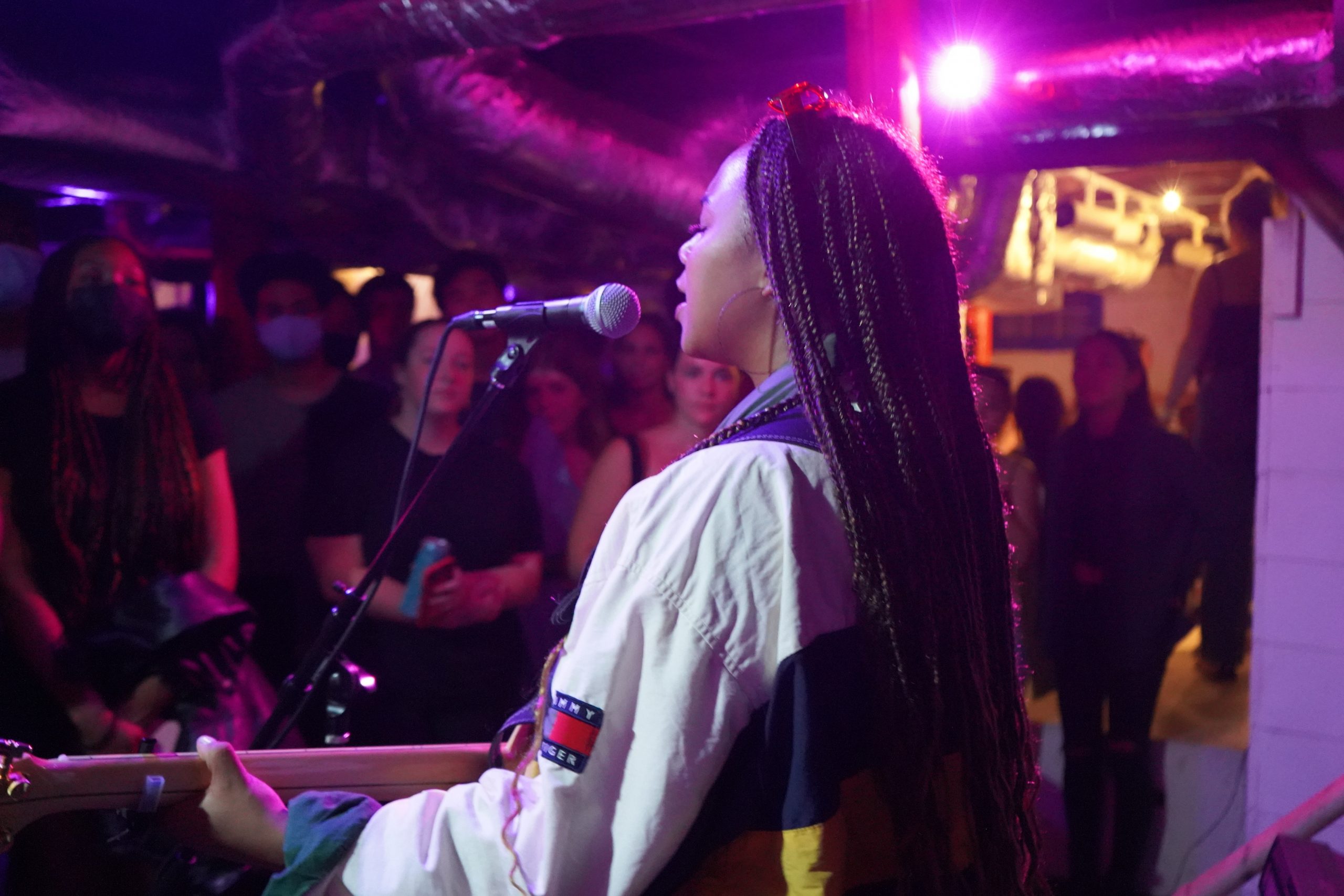
When walking down Euclid Avenue and other side streets surrounding Syracuse University, you’re likely to see houses with lines out the door, showcasing eager audiences of fellow peers’ popular concerts. Once inside, the professional-looking lighting, sound equipment, and stage transform these college homes into makeshift music venues.
There is a multitude of logistics to consider when organizing a home concert. A variety of student-run organizations work to bring the beat in.
Kenneth Barrist, television, radio, and film junior, is a co-founder of The Garden, a student-run concert venue operating out of the home of the other two co-founders, Music Industry juniors Jen Jordan and Lauren Brennan.
Barrist explained that the three put their own funding into the decorations for each show’s lighting, sound-mixing, staff salaries for people working the door, and the event, and water for guests. The co-founders pay the artists 50% of the door fees collected from audience members and use the rest of the money to pay their staff and prepare for their next show.
“Everything we bought we split three ways, and the goal was just to make it back after two shows,” said Brennan.
The crew originally planned their venue in the spring of 2021 and have conducted two shows since completing their setup. Their shows were successful enough to reimburse the funding they had spent prior to their first show, but each passing show has taught them that new expenses continue to arise as the needs for shows ebb and flow.
“It’s a continuous process of investing in it and making it back,” said Brennan.
Jordan stressed that all gig expenses are “out of our pockets baby,” but the managers believe their revenue flow marks a sustainable model that can continue to support future shows.
According to Brennan, show guests enjoy the venue and are willing to pay to see the performing artists. As long as the artists and crowds are happy, so is The Garden.
“We are not in it for the money and it shows,” said Jordan.
Other house gigs have varying funding sources to organize live music.
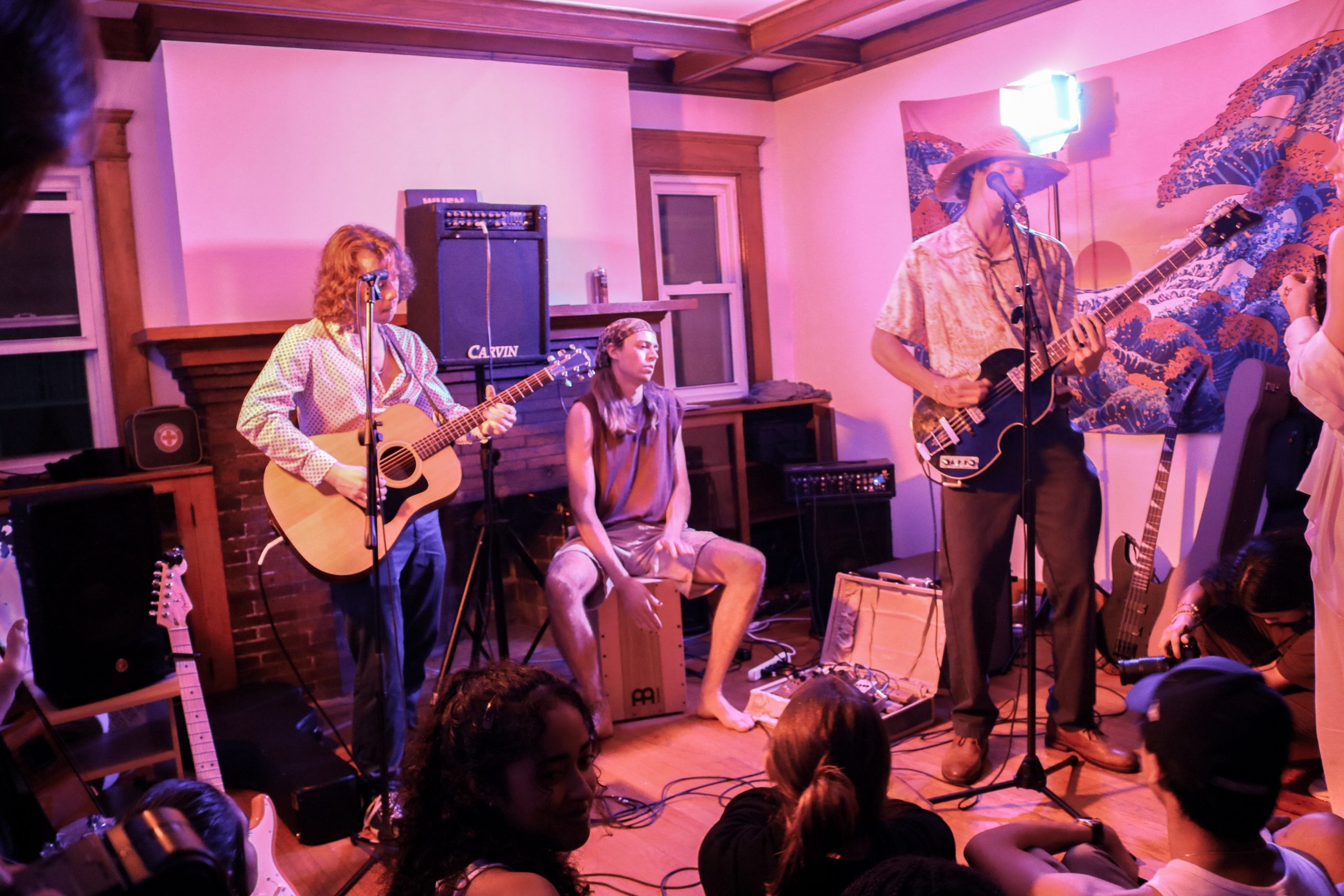
Sami Miller is the head of Sofar Syracuse, the city’s chapter of a global organization known for “secret, intimate gigs in unique spaces in over 350+ cities around the world,” according to their official Instagram page.
The Syracuse chapter started in 2020 and had its first show right before the pandemic, said Miller. She explained that the audience is typically unaware of the venue’s location until 36 hours prior to the event, and they find out the artist’s identity once they arrive.
Due to the pandemic and the obstacles in terms of marketing the niche experience offered by the organization, Miller decided to allow campus artists to advertise the show for the time being and find guests through word of mouth, as opposed to Sofar’s secretive marketing.
Miller does not have to foot the bill herself because all expenses go through the back end of Sofar, she stated. Metrics such as the artist’s info, the venue’s info, and other financial information, including the ticketing and artist fees, are put into the system and covered by the organization.
Each artist is paid a $100 flat fee per performance, and Miller often finds free house venues to host artists, but she explained that she hopes to book venues such as Armory Square restaurants that would require a booking fee in the future.
Even if Miller scouts artists or venues herself, all parties must be registered through Sofar’s system in order to participate in a concert. The system also enables her to search through available venues and registered artists for events if she does not already have an idea in mind.
Miller started her ticketing process by starting small with ticket availability. She offered 50 tickets for her first show and sold out. She upped the ticket number to 55, and she sold out again. She plans to follow her incremental plan until she builds a bigger audience. She hopes to expand beyond the campus scene and incorporate community members into Sofar’s events.
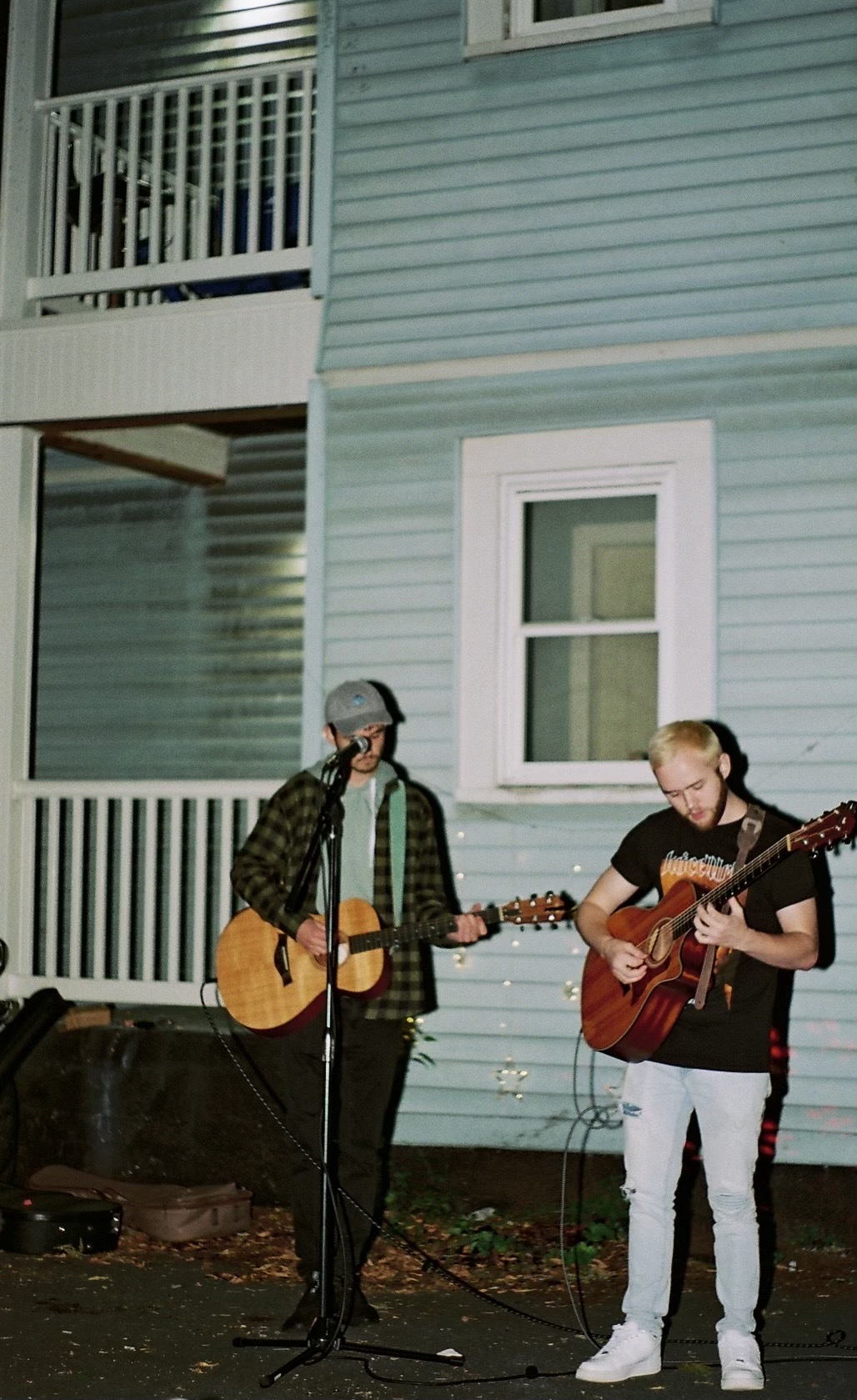
The uncertainty of handling concerts on campus is something entrepreneurship senior Josh Feldman is familiar with. Head of The Summit, another live music venue on campus, Feldman coordinates and handles the concert details.
He wants The Summit to be a “go-to” for people when they need a space to put on a show, an artist to book, or staff for an event. Feldman describes The Summit as a variety of music services and “not one specific place.”
Not only does Feldman offer the artists a percentage of the door fee, but he also offers an additional payment to the artists after the performance along with travel money to “cushion” the artists’ expenses if they are taking a flight or coming a long way to perform, he said.
Performance gear is provided by Feldman at the event’s venue from a budget he set aside at the beginning of the year.
Feldman handles all show bills himself. It can be difficult when people are unhappy with a show’s turnout or try to change the terms agreed upon after the show, as it all falls on him and his wallet to reconcile, he explained.
“My anxiety is at an all-time high a lot of the time,” said Feldman.
While he keeps his expenses organized, he does not know how sustainable his business model is going to be, Feldman said. However, he aspires to continue his path in artist management and practice production skills professionally post-grad.
“I would love to be doing exactly what I’m doing—planning shows for specific artists for their tour, planning tours in general for artists.”
Whether they’re running around on behalf of a larger live music organization or going solo in the venue business, students dominating the on-campus music scene are willing to personally fund quality performances.


